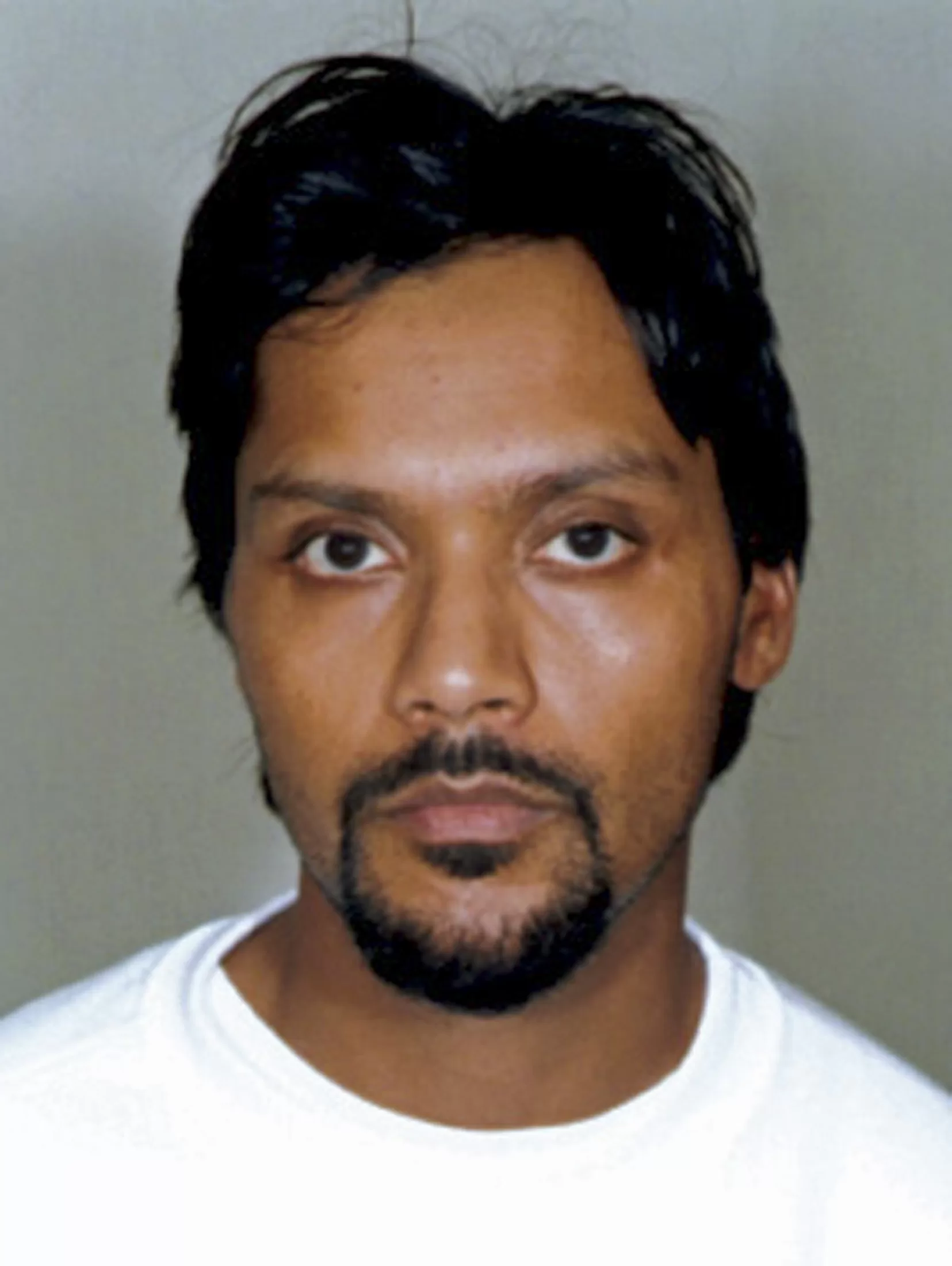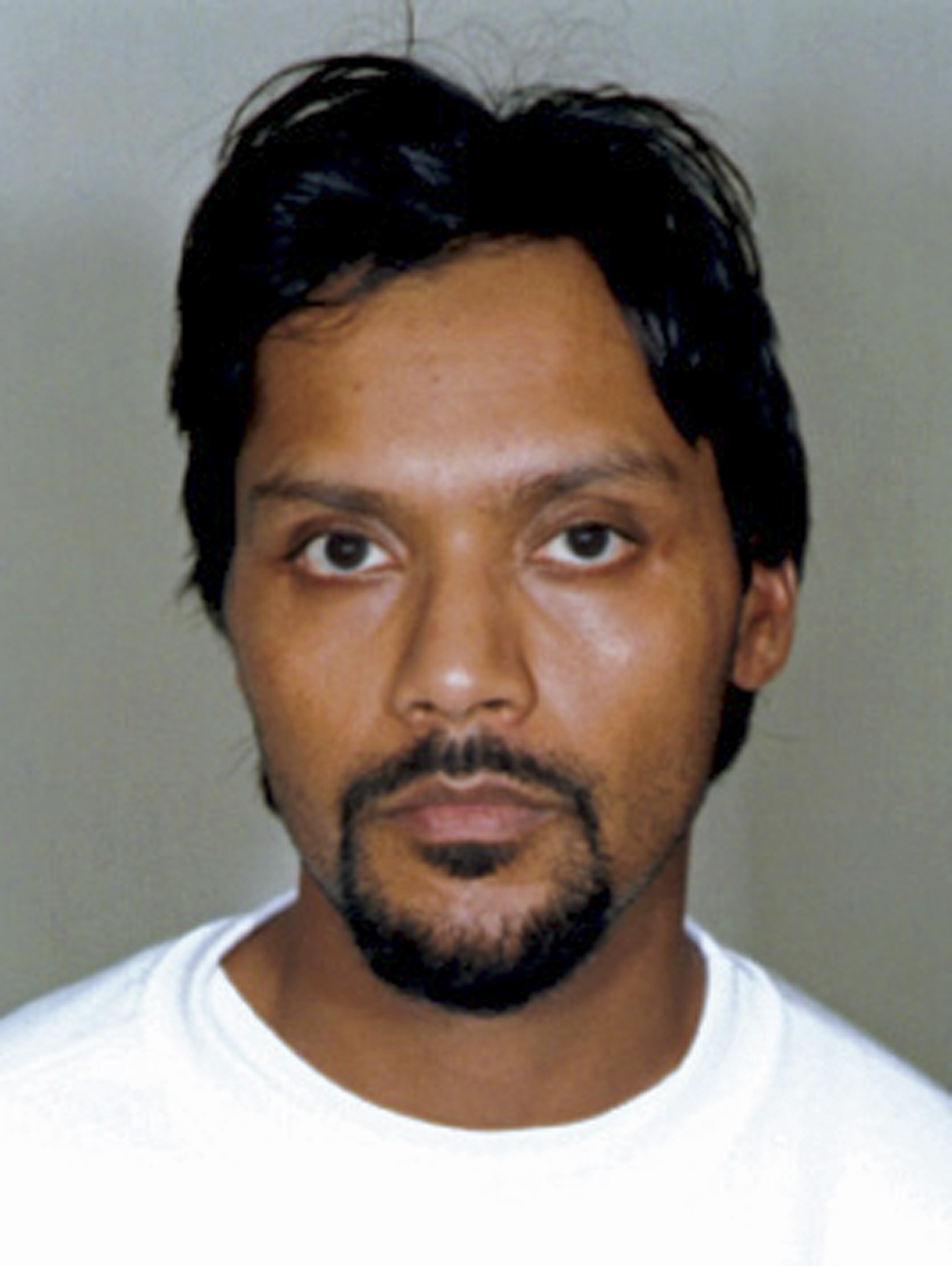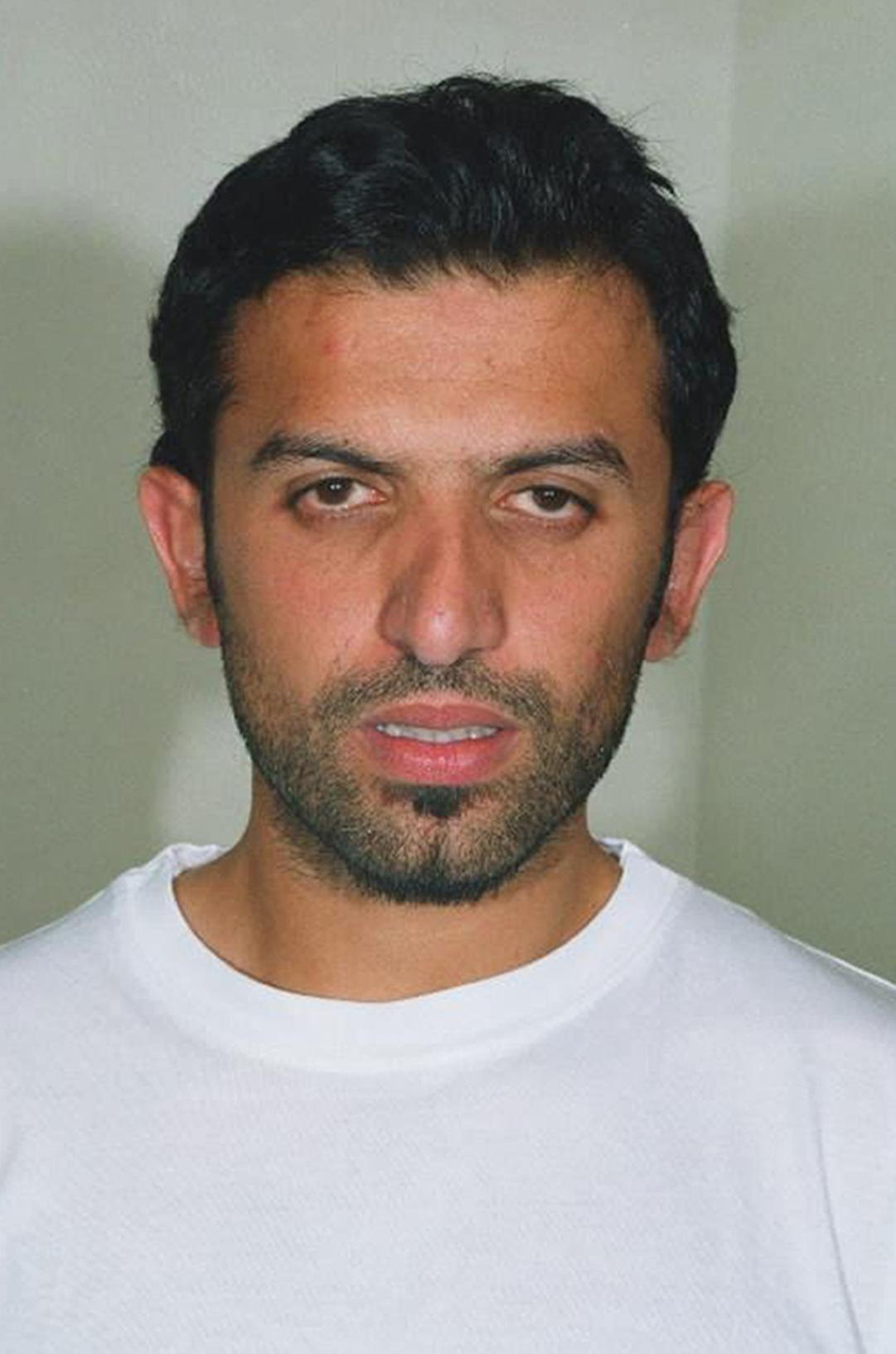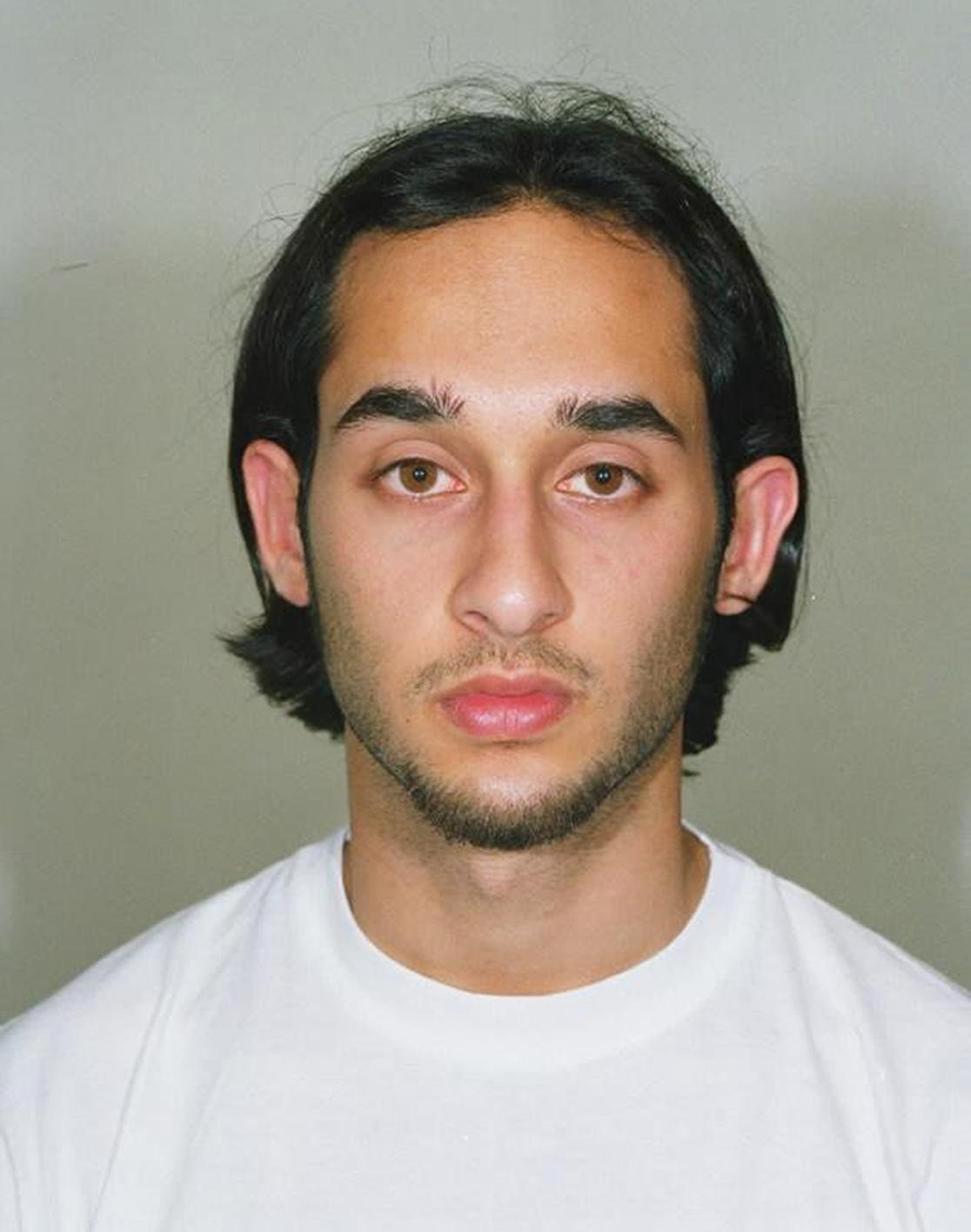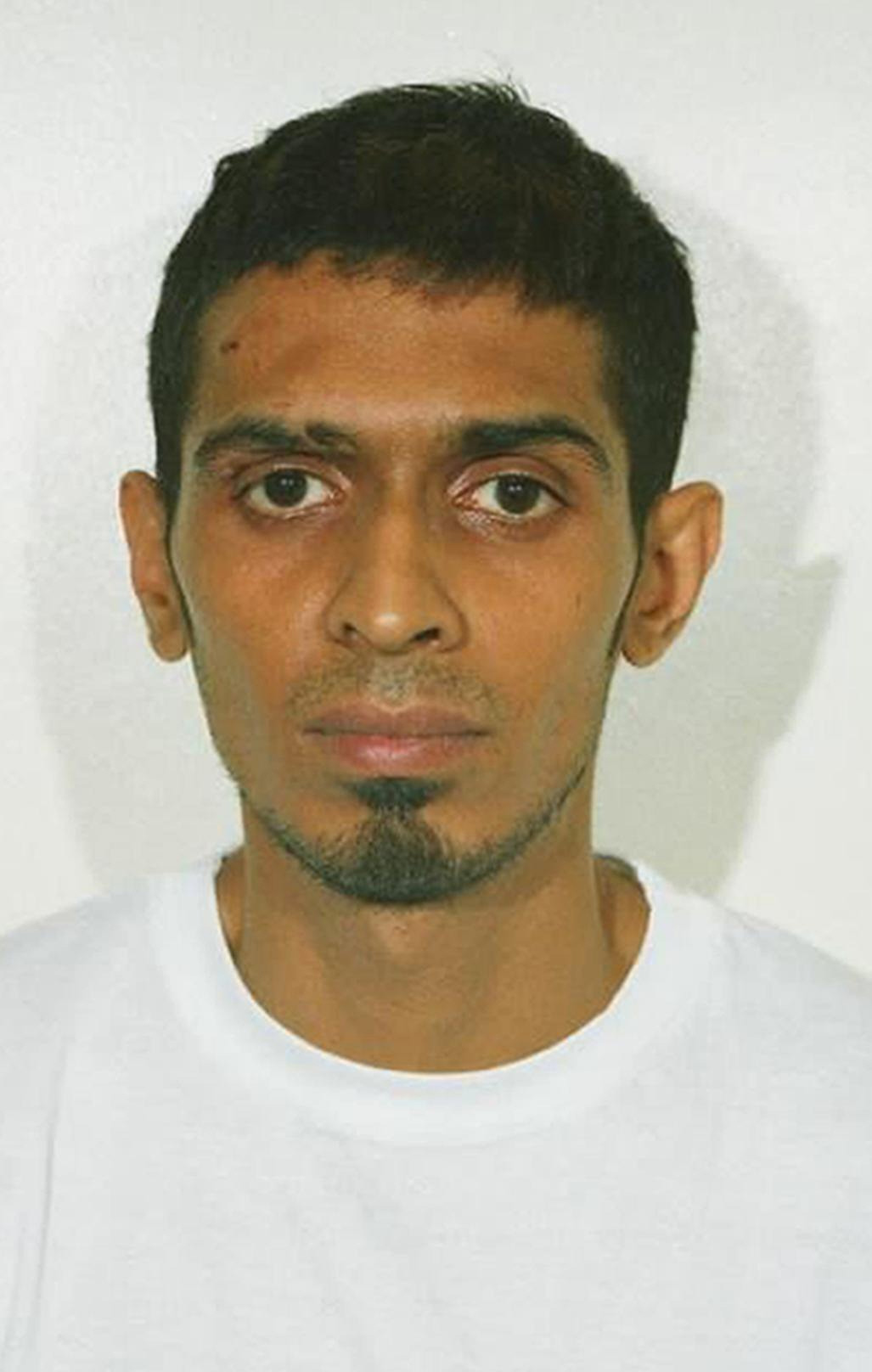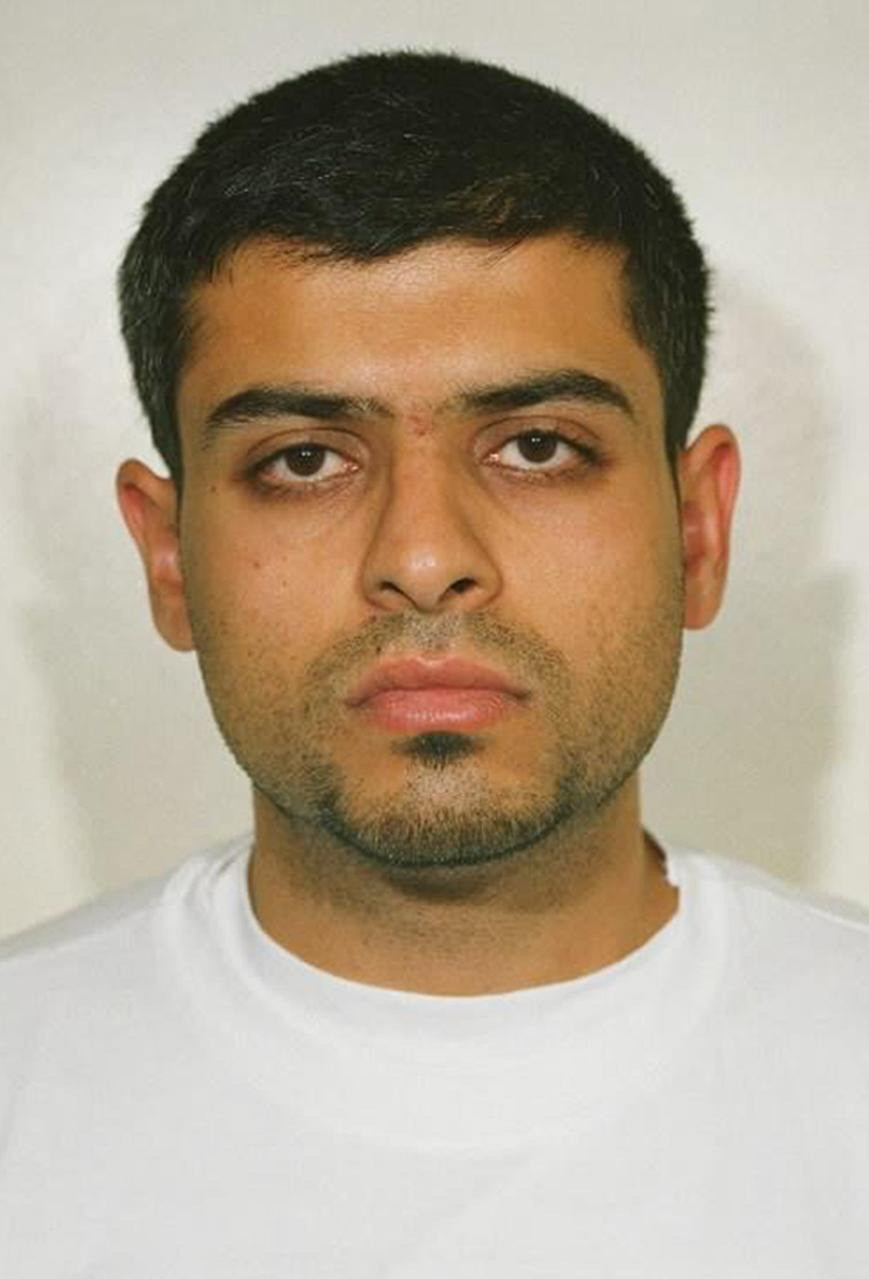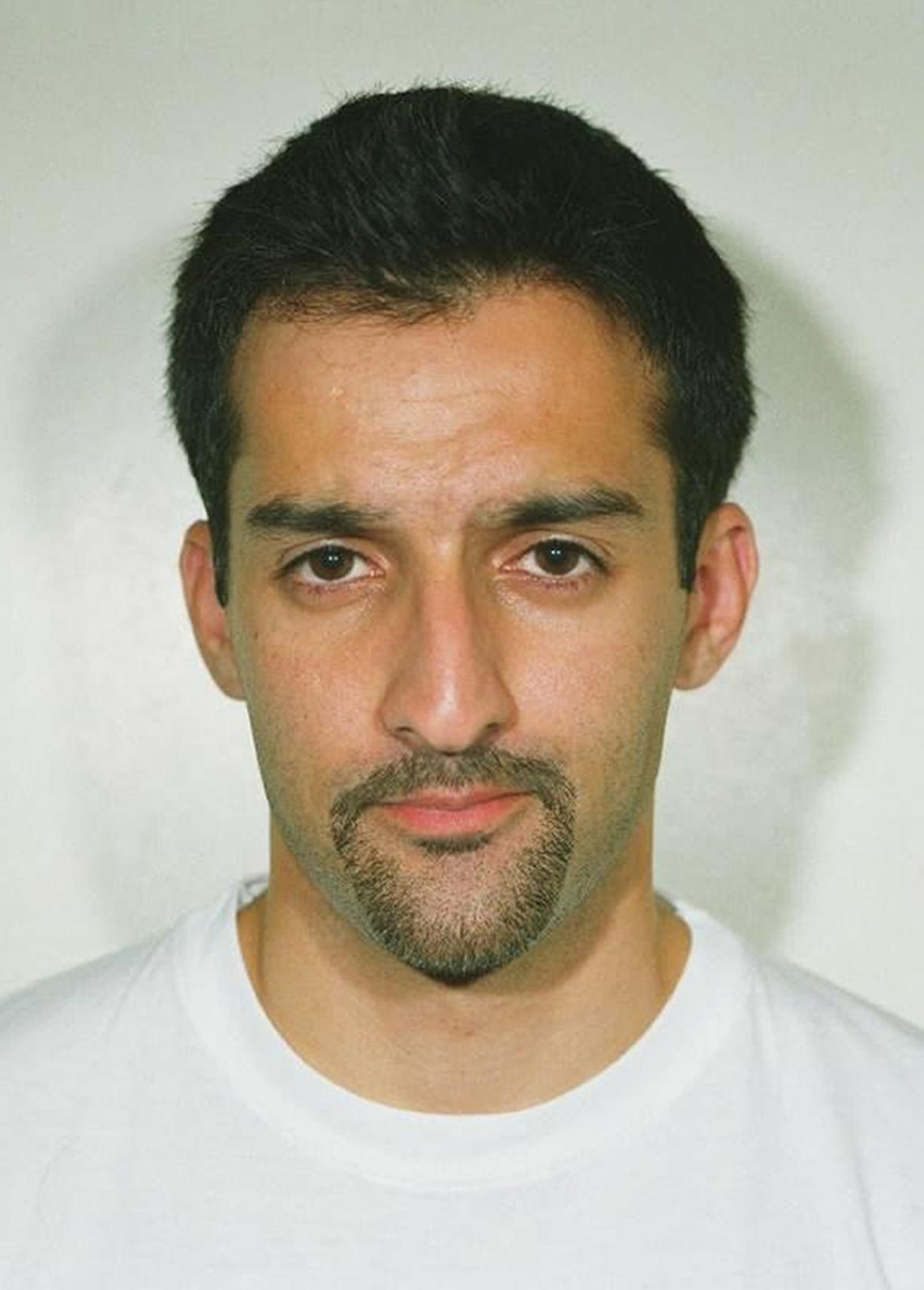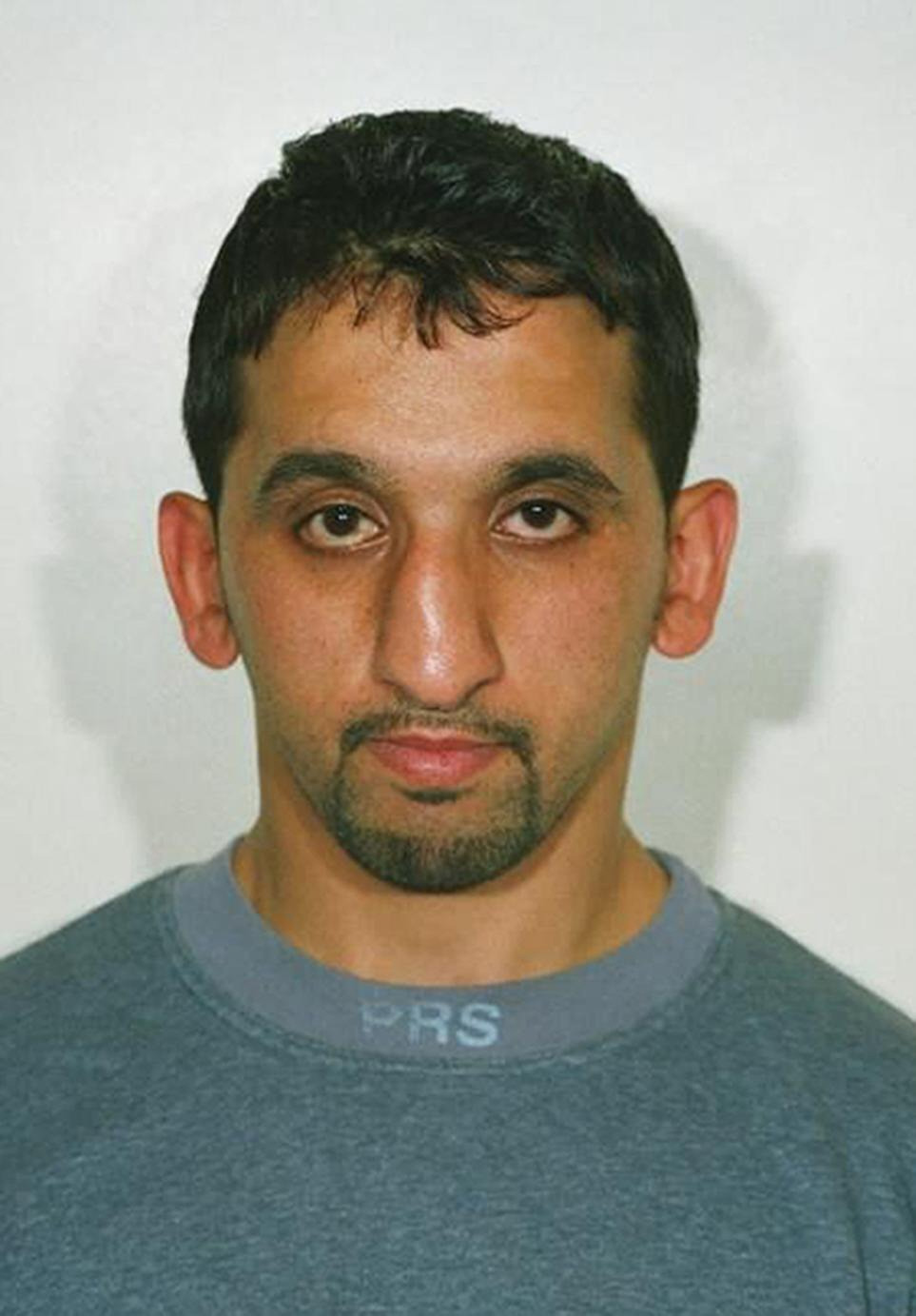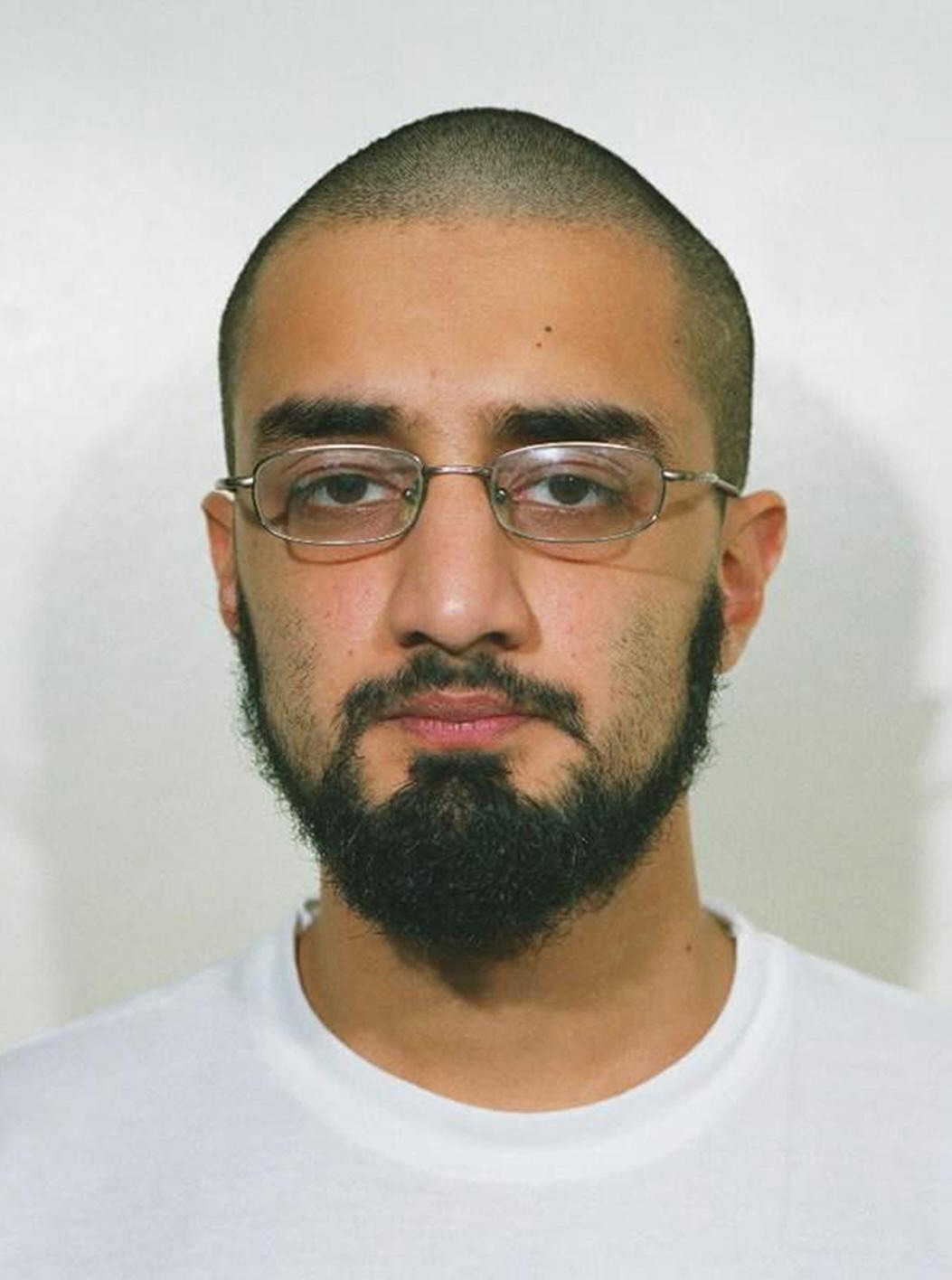The men, who were part of a sleeper cell that assisted Barot in planning a series of bomb plots in New York and London, were jailed in 2007 for a combined 136 years.
But they are now free to walk the streets after most served less than half their sentences.
The last of the group to be released was Abdul Aziz Jalil, then 34, who was handed a 26-year sentence and was believed to be Barot’s “minder”.
He pleaded guilty during his trial at Woolwich Crown Court to conspiracy to cause explosions between 2001 and 2004 alongside his fellow terrorist helpers, who provided intelligence and support to Barot.
Alongside Jalil, Mohammed Naveed Bhatti, 27, Junade Feroze, 31, Zia Ul Haq, 28, Nadeem Tarmohamed, 29, Omar Abdur Rehman, 23, and 28-year-old Qaisar Shaffi were all jailed.
TERROR GROUP NOW FREE
It has been confirmed that all the members of the group have been freed.
Most served less than half their sentences.
In February 2024 Jalil was freed following a parole hearing.
Chris Phillips, the UK’s former Head of the National Counter Terrorism, told MailOnline: “This is madness.
“This determined gang of terrorists planned to kill hundreds of people in bombings on both sides of the Atlantic.
“Releasing them almost certainly with the same views they had when plotting murder shows how weak our society has become.
“They will not fear returning to prison as they intended to be martyrs. Our society can only be more dangerous with these men in it.”
Barot was a senior British member of Osama bin Laden’s network and the mastermind behind the planned attacks.
He was sentenced in November 2007 to life imprisonment.
Barot admitted to plots targeting the bombing of the New York Stock Exchange, the International Monetary Fund headquarters and the World Bank, among other targets.
It was revealed in April 2007 he had planned to use limousines packed with explosives and radioactive “dirty: bombs for the attacks.
The plans for an attack on London included blowing up an underwater tunnel below the River Thames, drowning hundreds of commuters.
Barot pleaded guilty to conspiracy to murder and it was recommended he serve a minimum of 40 years, which was reduced to 30 years in May 2007.
At his trial, it emerged that Jalil, from Luton, had rented a “safe house” for Barot where planning material was kept and his fingerprints were found on documents connected to chemicals.
He also attended terror training camps in Pakistan and helped with research into radioactivity.
They will not fear returning to prison as they intended to be martyrs. Our society can only be more dangerous with these men in it
Chris Phillips, the UK’s former Head of the National Counter Terrorism
The jury heard how the seven men were key for Barot to push ahead with the plots in the summer of 2004.
Barot handed out key parts of his plans to other members of the team, utilising their skills in devising false identities as minders and researchers, prosecutors said.
Deputy Assistant Commissioner Peter Clarke, head of the Metropolitan Police’s Counter Terrorism Command, said at the time that while the seven men did not instigate the planned attacks, Barot needed their help and expertise.
He said: “Dhiren Barot and his gang were determined terrorists who planned bombings on both sides of the Atlantic.
“The plans for a series of coordinated attacks in the United Kingdom included packing three limousines with gas cylinders and explosives before setting them off in underground car parks. This could have caused huge loss of life.
PLANNED A DIRTY BOMB ATTACK
“The plans to set off a dirty bomb in this country would have caused fear, panic and widespread disruption.”
Mr Justice Butterfield said during the sentencing of the seven men that anyone who participates in such a plan “will receive little sympathy from the courts.”
He said: “Barot was the instigator of this terrorist planning, he was by some considerable distance the principal participant in the conspiracy.
“Each one of you was recruited by Barot and assisted him at his request.”
The then Home Secretary John Reid said at the time: “The outcome of this trial once again shows the extent of the very real and serious threat the UK faces from terrorism.”
The co-conspirators already released from jail are:
Qaisar Shaffi, of Willesden, north-west London, who was sentenced to 15 years, was the first to be recommended for release by the Parole Board in 2012.
Zia Ul Haq, from Wembley, North London, who was jailed for 18 years, was directed for release in 2014.
Naveed Bhatti, of Harrow, North London, who was jailed for 20 years, was directed for release in 2015.
Nadeem Tarmohamed, of Wembley, who received 20 years, was also directed for release in 2015.
In 2016, Junade Feroze, of Blackburn, who got 22 years , was directed for release.
Omar Abdur Rehman, of Bushey, Hertfordshire, who was jailed for 15 years, was rejected for release in 2013, according to the Parole Board.
He is thought to have been freed at the end of his sentence.
The Ministry of Justice has confirmed Jalil, now 49, has been released.
A spokesperson for the Parole Board said: “We can confirm that a panel of the Parole Board has directed the release of Abdul Aziz Jalil following an oral hearing.
“Parole Board decisions are solely focused on what risk a prisoner could represent to the public if released and whether that risk is manageable in the community.
“A panel will carefully examine a huge range of evidence, including details of the original crime, and any evidence of behaviour change, as well as explore the harm done and impact the crime has had on the victims.
“Members read and digest hundreds of pages of evidence and reports in the lead up to an oral hearing.
“Evidence from witnesses such as probation officers, psychiatrists and psychologists, officials supervising the offender in prison as well as victim personal statements may be given at the hearing.
“It is standard for the prisoner and witnesses to be questioned at length during the hearing which often lasts a full day or more.
“Parole reviews are undertaken thoroughly and with extreme care. Protecting the public is our number one priority.”
Barot, now 52, who was born in India, is being held in a maximum security jail.
He is not eligible for parole until 2037.
A spokesperson for the Ministry of Justice said: “This release decision was made by the independent Parole Board after a thorough risk assessment.
“Terrorists released on licence are supervised by the Probation Service, with the support of police and the security services, and subject to strict conditions including restrictions on their internet use, movements and contact with others.
“If they break those conditions they face being brought back to prison.”
